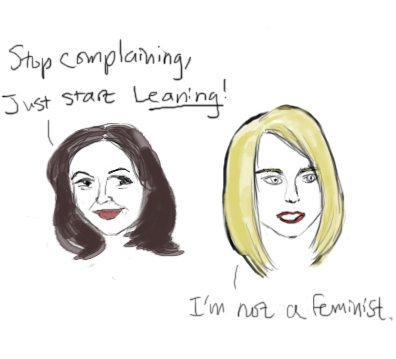Today is the 43rd annual Women’s Equality Day. On this day in 1920, the 19th amendment was passed, granting women the right to vote. Over the next 93 years, we’ve achieved a lot toward gender equality. Women far outstrip men in higher education at every level: in bachelor’s degrees (since 1982), master’s degrees (since 1987), and doctor’s degrees (since 2006). In 2013, there were 140 female college grads for every 100 male grads. But such advances pale once we take into account the gender pay gap that still persists today. According to the Center for American Progress, a woman with a Ph.d. earns about as much as a man with a bachelor’s degree–so that progress in higher education may not reflect women’s competitive advantage, as much as their response to the competitive disadvantage that they already face.
And to anyone who might say that women’s choice in majors, industry, occupation, and time spent on the job can explain the gender pay gap, these two numbers should set the record straight. In 2012, CNN reported that women were already making $8,000 less than men just one year after graduating from college, even adjusted for industry and occupation. (To rub salt to the wound, the results were based on the data for most recent year available, which happened to be my graduating class of 2009.) And fully 40% of the gender pay gap is not attributed to factors like maternity leave, part time schedule, industry, occupation, experience, or even union status. It’s “unexplained” by any other factor than gender.
 With such clear indications, we must bring gender inequality back into the dialogue, and in ways that does not shame women or the idea of feminism. Rather than appreciating the advances brought on by feminists and standing up for future generations, today’s women leaders tend to belittle or outright shun feminism. Facebook COO Sheryl Sandberg‘s call for women to “lean in,” for instance, places blame on the individual rather than the system: if you can’t also go to Harvard, work for Larry Summers, get a job at Google, marry another rich business man, and then get a job at Facebook, then you’re not leaning in hard enough! (I’m not even going to get into the fiasco earlier this month of her Lean In organization seeking an unpaid intern, but many others picked apart the irony of a women’s empowerment group–led by a billionaire–seeking to exploit highly-skilled workers.) Equally ubiquitous Marissa Mayer, the CEO of Yahoo, goes even further in calling feminists “militant and with sort of a chip on their shoulder,” and recently telling Vogue how “blind” she is to the problem of gender. Does she have any idea what kind of fight the “militant” and “insecure” feminists had to put up to earn the nineteenth amendment and Title IX?
With such clear indications, we must bring gender inequality back into the dialogue, and in ways that does not shame women or the idea of feminism. Rather than appreciating the advances brought on by feminists and standing up for future generations, today’s women leaders tend to belittle or outright shun feminism. Facebook COO Sheryl Sandberg‘s call for women to “lean in,” for instance, places blame on the individual rather than the system: if you can’t also go to Harvard, work for Larry Summers, get a job at Google, marry another rich business man, and then get a job at Facebook, then you’re not leaning in hard enough! (I’m not even going to get into the fiasco earlier this month of her Lean In organization seeking an unpaid intern, but many others picked apart the irony of a women’s empowerment group–led by a billionaire–seeking to exploit highly-skilled workers.) Equally ubiquitous Marissa Mayer, the CEO of Yahoo, goes even further in calling feminists “militant and with sort of a chip on their shoulder,” and recently telling Vogue how “blind” she is to the problem of gender. Does she have any idea what kind of fight the “militant” and “insecure” feminists had to put up to earn the nineteenth amendment and Title IX?
Without Susan B. Anthony, Betty Friedan, and Gloria Steinem, neither of these high profile executives could have reached their position. And in their position of privilege, they have the power to call for systematic changes in both corporate and political spheres. Yet they don’t feel they owe anything to women’s rights movement, and want people to acknowledge their accomplishments as theirs alone. This belief that individuals are solely responsible for whatever accomplishments (or failures) is not just myopic, but seriously damaging to the cause of gender equality. Sadly, they are not the only ones to shun feminism–and yet, it’s one progressive cause that absolutely everyone should feel happy to embrace. Gender equality affects not just women, but anyone with wives, girlfriends, sisters, daughters, aunts, and mothers. As vegans, we already know that wanting to change the world for the better doesn’t make us militant or insecure–just conscientious, caring, optimistic, and hopeful. So on this Women’s Equality Day, we want to say that we are all proud feminists at Peaceful Dumpling.
More women’s issues: If You Marry a Rich Man, You Will Earn Less Money
Surprising Thing That Can Affect Your Chances of Grad School Admission
Illustration: Peaceful Dumpling




